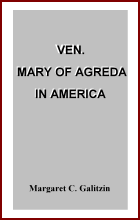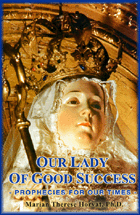Faith under Attack
 |
 |
 |
 |
 |
 |
 |
Controversy over the Sabbatine Privilege
A reader recently wrote TIA in confusion because a priest had told him that the Sabbatine privilege is not verifiable. “Is this true?” he inquired.
TIA responds:
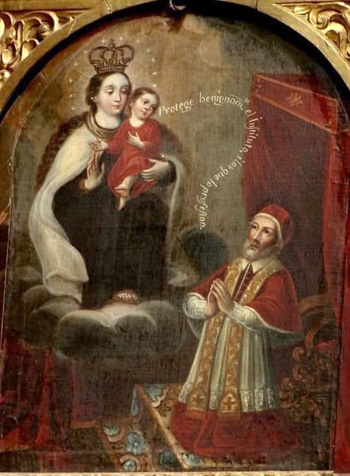 We assume that this priest may be doubtful because of a controversy that occurred in the 17th century between the Carmelites and Jesuits along with other theologians. The controversy was over the authenticity of the Bull Sacratissimo uti culmine issued by Pope John XXII on March 3, 1322.
We assume that this priest may be doubtful because of a controversy that occurred in the 17th century between the Carmelites and Jesuits along with other theologians. The controversy was over the authenticity of the Bull Sacratissimo uti culmine issued by Pope John XXII on March 3, 1322.
A bit of history
In this Bull, the Pope declared that Our Lady appeared to him recommending the Carmelite Order to him and asking him, as the Vicar of Christ, to ratify the indulgences and blessings that from Heaven Our Lord had already granted to the Carmelite Order and members of their confraternity who wear the Brown Scapular.
These indulgences include a plenary indulgence for the members of the Carmelite Order, and a partial indulgence for the members of the Carmelite Confraternity remitting a third part of the temporal punishment they would deserve for their sins. Our Lady also promised that she herself would descend on the Saturday after their death and liberate from Purgatory and conduct to Heaven those who had died wearing the Carmelite Scapular.
The Pope ended the Bull with the words: Istam ergo sanctam Indulgentiam accepto, roboro et in terris confirmo, sicut, propter merita Virginis Matris, gratiose Jesus Christus concessit in coelis. (This holy indulgence I therefore accept; I confirm and ratify on earth, just as Jesus Christ has graciously granted it in Heaven on account of the merits of the Virgin Mother.)
Our information about this Bull is derived from a work by the Carmelite Fr. Balduinus Leersius who died in 1483 (Collectaneum exemplorum et miraculorum, Orléans: Bibliotheca Carmelitarum, 1752, vol. I, p. 210). His work was widely accepted in the 15th and 16th centuries.
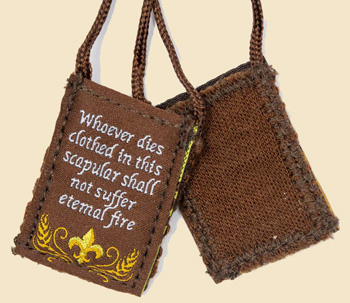 Two sides disputing
Two sides disputing
However, in the early 1600s, a strong opposition against the authenticity of this Bull came to light. Even among Carmelites such opposition could be found: for example, in Fr. B. Zimmerman who criticized it in a historical work he wrote. This is the origin of today's skepticism regarding the authenticity of the Sabbatine Privilege.
Yet, we should consider that Rationalism was having a great influence on the enlightened clerics and scholars of those times, who looked disdainfully upon the Sabbatine Privilege as superstitious.
We believe it was this bad influence that was the principal cause for the attack against many traditions of the Church that were passed down for centuries, including the Sabbatine Privilege.
On the other hand, during the time of the controversy many theologians and scholars, especially the Bollandists, were striving to prove the authenticity of the Church approved revelations and lives of the Saints in order to combat Protestantism, who contested the cult to Our Lady and the Saints.
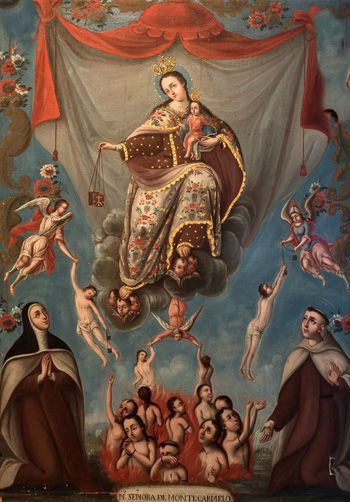 Although this goal was laudable, some of these Jesuits, in their attachment to scholarship and the rationalist spirit of the age, may have gone too far in rejecting Carmelite miracles that had been accepted as true for centuries.
Although this goal was laudable, some of these Jesuits, in their attachment to scholarship and the rationalist spirit of the age, may have gone too far in rejecting Carmelite miracles that had been accepted as true for centuries.
One of the chief opponents of the Bull was the Bollandist Fr. Daniel Papebroch, who entered into a bitter dispute with the Carmelites in the 1680s when he also challenged the venerable tradition that the origin of the Order dated back to the Prophet Elias as insufficiently grounded. It was during this same period that he questioned the Sabbatine Bull.
The Carmelites fought vigorously against this accusation and were supported by the Spanish Inquisition, which in November 1695, issued a decree condemning the 14 volumes of the Acta Sanctorum published up to that time– largely the work of Papebroch – and branding it heretical.
When Papebroch appealed to Rome, Rome did not confirm the condemnation in Spain. Instead, in November 1698, Pope Innocent XII issued a brief that suspended the controversy by imposing silence on both parties.
Thus, no official decision was made on that condemnation of Fr. Papebroch. It was an indirect way to say that Pope Innocent XII allowed the Carmelites to maintain their age-old traditions.
Position of other Popes
Several Popes in the 16th century approved the John XXII's Bull, and many Carmelite theologians have defended it – Fr. Brocard and Fr. Raynaud being two of the most prominent.
1. In 1530, Pope Clement VII ratified the Bull of John XXII in his Encyclical Ex clementi;
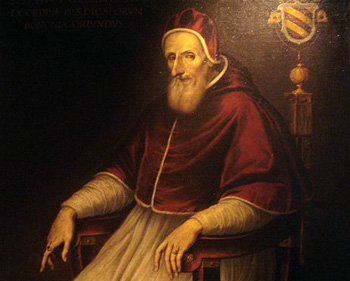 2. Thirty six years later Pope St. Pius V confirmed the same in Superna dispositione stating:
2. Thirty six years later Pope St. Pius V confirmed the same in Superna dispositione stating:
"Furthermore, all singular privileges, indulgences and other graces, including the Sabbatine indulgences, granted to the said ancient church by the pious memory of John XXII, Innocent VIII and Clement VII, and perhaps other Roman Pontiffs, our predecessors, and approved by whatever letters issued thereupon, we consider sufficiently expressed and included in these presents.
“By our own motion, not at the instance of the petition of the Prior and Convent or another on their behalf, but by our mere deliberation, we approve by apostolic authority the tenor of these presents, all and singular the privileges, indulgences, and other graces mentioned, as far as they are in use and do not contradict the decrees of the Council of Trent." (https://scapularap.com/blog/the-sabbatine-privilege)
3. On January 20, 1613, the Holy Roman General Inquisition under Paul V allowed the Carmelites to continue their traditions, by a Decree that stated the following:
"It is permitted to the Carmelite Fathers to preach that the Christian people may piously believe in the help which the souls of brothers and members, who have departed this life in charity, have worn in life the scapular ... may derive [be saved] after death – especially on Saturdays, the day consecrated by the Church to the Blessed Virgin – through the unceasing intercession of Mary, her pious petitions, her merits, and her special protection."
These texts show that the mentioned Popes, especially St. Pius V, emphatically authorized the Sabbatine Privilege to be believed by all.
Dom Guéranger versus Fr. De Launoy
A chief opponent of the Bull was Jean de Launoy, a Gallican and Jansenist; he also put doubt on the legend of St. Catherine of Alexandria and the Provençal legends of Mary Magdalene and her companions. His heresy and political standing make it quite clear that he was not a scholar of good will, but a heretic whose lack of faith led him to undermine ancient Catholic traditions.
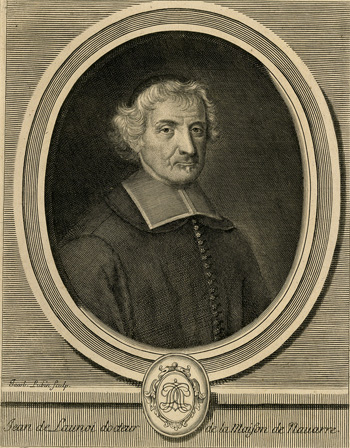 Dom Guéranger, renowned for his erudition and orthodoxy, takes a strong stance against Launoy and in favor of the Carmelites and their Bull. He writes:
Dom Guéranger, renowned for his erudition and orthodoxy, takes a strong stance against Launoy and in favor of the Carmelites and their Bull. He writes:
"We are aware of the attempts made to nullify the authenticity of these heavenly concessions [of the Bull of John XXII]; but our extremely limited time will not allow us to follow up these worthless struggles in all their endless details. The attack of the chief assailant, the too famous Launoy, was condemned by the Apostolic See; and after, as well as before these contradictions, the Roman Pontiffs confirmed … the substance and even the letter of the precious (Sabbatine) promises.
“The reader may find in special works the enumeration of the many indulgences with which the Popes have, time after time, enriched the Carmelite family, as if earth would vie with Heaven in favoring it. The munificence of Mary, the pious gratitude of her sons for the hospitality given them by the West, and lastly, the authority of St. Peter’s successors, soon made these spiritual riches accessible to all Christians, by the institution of the Confraternity of the holy Scapular, the members whereof participate in the merits and privileges of the whole Carmelite Order.
“Who shall tell the graces, often miraculous, obtained through this humble garb? Who could count the faithful now enrolled in the holy militia? When Benedict XIII, in the 18th century, extended the feast of July 16 to the whole Church, he did but give an official sanction to the universality already gained by the cultus of the Queen of Carmel." (The Liturgical Year, vol. XIII, pp. 115-116)
Our conclusion is that the Sabbatine Privilege is indisputably recommended by the Catholic Church, both as approved by the Popes and as a multi-secular tradition.

TIA responds:

Our Lady appears to Pope John XXII & confirms her promises & predilection for the Carmelite Order
A bit of history
In this Bull, the Pope declared that Our Lady appeared to him recommending the Carmelite Order to him and asking him, as the Vicar of Christ, to ratify the indulgences and blessings that from Heaven Our Lord had already granted to the Carmelite Order and members of their confraternity who wear the Brown Scapular.
These indulgences include a plenary indulgence for the members of the Carmelite Order, and a partial indulgence for the members of the Carmelite Confraternity remitting a third part of the temporal punishment they would deserve for their sins. Our Lady also promised that she herself would descend on the Saturday after their death and liberate from Purgatory and conduct to Heaven those who had died wearing the Carmelite Scapular.
The Pope ended the Bull with the words: Istam ergo sanctam Indulgentiam accepto, roboro et in terris confirmo, sicut, propter merita Virginis Matris, gratiose Jesus Christus concessit in coelis. (This holy indulgence I therefore accept; I confirm and ratify on earth, just as Jesus Christ has graciously granted it in Heaven on account of the merits of the Virgin Mother.)
Our information about this Bull is derived from a work by the Carmelite Fr. Balduinus Leersius who died in 1483 (Collectaneum exemplorum et miraculorum, Orléans: Bibliotheca Carmelitarum, 1752, vol. I, p. 210). His work was widely accepted in the 15th and 16th centuries.

The famous promise of the brown scapular with the due conditions is worthy of belief
However, in the early 1600s, a strong opposition against the authenticity of this Bull came to light. Even among Carmelites such opposition could be found: for example, in Fr. B. Zimmerman who criticized it in a historical work he wrote. This is the origin of today's skepticism regarding the authenticity of the Sabbatine Privilege.
Yet, we should consider that Rationalism was having a great influence on the enlightened clerics and scholars of those times, who looked disdainfully upon the Sabbatine Privilege as superstitious.
We believe it was this bad influence that was the principal cause for the attack against many traditions of the Church that were passed down for centuries, including the Sabbatine Privilege.
On the other hand, during the time of the controversy many theologians and scholars, especially the Bollandists, were striving to prove the authenticity of the Church approved revelations and lives of the Saints in order to combat Protestantism, who contested the cult to Our Lady and the Saints.

Our Lady releasing from Purgatory the souls who wore the scapular
One of the chief opponents of the Bull was the Bollandist Fr. Daniel Papebroch, who entered into a bitter dispute with the Carmelites in the 1680s when he also challenged the venerable tradition that the origin of the Order dated back to the Prophet Elias as insufficiently grounded. It was during this same period that he questioned the Sabbatine Bull.
The Carmelites fought vigorously against this accusation and were supported by the Spanish Inquisition, which in November 1695, issued a decree condemning the 14 volumes of the Acta Sanctorum published up to that time– largely the work of Papebroch – and branding it heretical.
When Papebroch appealed to Rome, Rome did not confirm the condemnation in Spain. Instead, in November 1698, Pope Innocent XII issued a brief that suspended the controversy by imposing silence on both parties.
Thus, no official decision was made on that condemnation of Fr. Papebroch. It was an indirect way to say that Pope Innocent XII allowed the Carmelites to maintain their age-old traditions.
Position of other Popes
Several Popes in the 16th century approved the John XXII's Bull, and many Carmelite theologians have defended it – Fr. Brocard and Fr. Raynaud being two of the most prominent.
1. In 1530, Pope Clement VII ratified the Bull of John XXII in his Encyclical Ex clementi;

St. Pius V approved the Sabbatine Privilege
"Furthermore, all singular privileges, indulgences and other graces, including the Sabbatine indulgences, granted to the said ancient church by the pious memory of John XXII, Innocent VIII and Clement VII, and perhaps other Roman Pontiffs, our predecessors, and approved by whatever letters issued thereupon, we consider sufficiently expressed and included in these presents.
“By our own motion, not at the instance of the petition of the Prior and Convent or another on their behalf, but by our mere deliberation, we approve by apostolic authority the tenor of these presents, all and singular the privileges, indulgences, and other graces mentioned, as far as they are in use and do not contradict the decrees of the Council of Trent." (https://scapularap.com/blog/the-sabbatine-privilege)
3. On January 20, 1613, the Holy Roman General Inquisition under Paul V allowed the Carmelites to continue their traditions, by a Decree that stated the following:
"It is permitted to the Carmelite Fathers to preach that the Christian people may piously believe in the help which the souls of brothers and members, who have departed this life in charity, have worn in life the scapular ... may derive [be saved] after death – especially on Saturdays, the day consecrated by the Church to the Blessed Virgin – through the unceasing intercession of Mary, her pious petitions, her merits, and her special protection."
These texts show that the mentioned Popes, especially St. Pius V, emphatically authorized the Sabbatine Privilege to be believed by all.
Dom Guéranger versus Fr. De Launoy
A chief opponent of the Bull was Jean de Launoy, a Gallican and Jansenist; he also put doubt on the legend of St. Catherine of Alexandria and the Provençal legends of Mary Magdalene and her companions. His heresy and political standing make it quite clear that he was not a scholar of good will, but a heretic whose lack of faith led him to undermine ancient Catholic traditions.

French historian Fr. Jean de Launoy - a Gallican & Jansenist & a chief opponent of the Bull
"We are aware of the attempts made to nullify the authenticity of these heavenly concessions [of the Bull of John XXII]; but our extremely limited time will not allow us to follow up these worthless struggles in all their endless details. The attack of the chief assailant, the too famous Launoy, was condemned by the Apostolic See; and after, as well as before these contradictions, the Roman Pontiffs confirmed … the substance and even the letter of the precious (Sabbatine) promises.
“The reader may find in special works the enumeration of the many indulgences with which the Popes have, time after time, enriched the Carmelite family, as if earth would vie with Heaven in favoring it. The munificence of Mary, the pious gratitude of her sons for the hospitality given them by the West, and lastly, the authority of St. Peter’s successors, soon made these spiritual riches accessible to all Christians, by the institution of the Confraternity of the holy Scapular, the members whereof participate in the merits and privileges of the whole Carmelite Order.
“Who shall tell the graces, often miraculous, obtained through this humble garb? Who could count the faithful now enrolled in the holy militia? When Benedict XIII, in the 18th century, extended the feast of July 16 to the whole Church, he did but give an official sanction to the universality already gained by the cultus of the Queen of Carmel." (The Liturgical Year, vol. XIII, pp. 115-116)
Our conclusion is that the Sabbatine Privilege is indisputably recommended by the Catholic Church, both as approved by the Popes and as a multi-secular tradition.

Posted August 11, 2025
______________________
______________________



